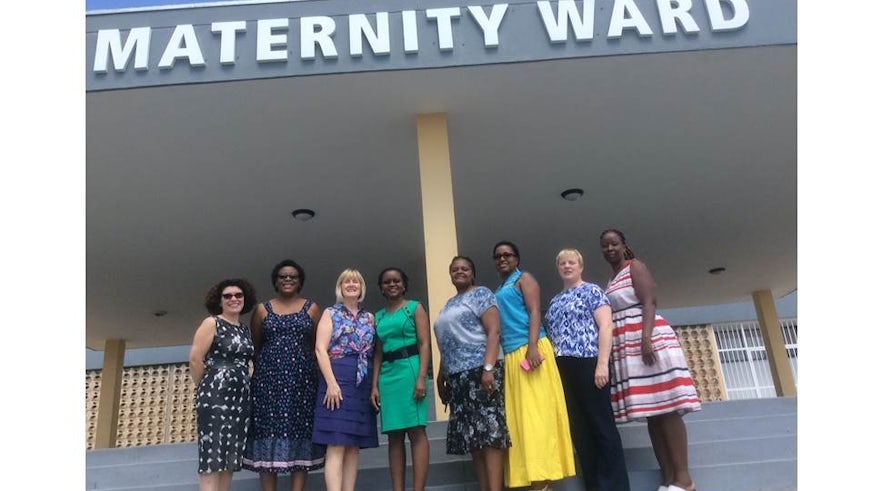Phoenix Project 'wonderful' for Namibia
5 November 2015

Welsh expertise helping transform medical practice in southern Africa
Senior doctors, hospital managers and academics in Namibia say a Cardiff University project will save lives and have major benefits to the population across the country and beyond.
The Phoenix Project is using Welsh expertise in collaboration with the University of Namibia (UNAM) to provide the country's first specialist anaesthesia training.
Namibia has just a handful of specialist anaesthetists so surgery and critical care often rely on medical officers who have had little anaesthesia training.
Six anaesthetists from south Wales, led by Professor Judith Hall from the School of Medicine, have been training students and doctors in anaesthesia and critical care skills in desert-like conditions in Oshakati in the north of the country near the Angolan border.


The training is part of the University’s ambitious Phoenix Project, which has teamed up with Welsh Government and the University of Namibia (UNAM) for a raft of activities involving education, health and science.
They include honing the maths skills of scientists, boosting teaching practices and supporting software development.
Dr Josphina Augustinus, who runs Oshakati hospital in the north, said the project was "meaningful" and "wonderful" for Namibia and she would like it to continue and expand.
Currently, patients often have operations cancelled because of the lack of anaesthetists.
"This has a great impact on the institution itself, Intermediate Hospital Oshakati, and also to the community because since people are well acquainted with anaesthesia and well trained, they will save lives," said Dr Augustinus.
"When patients are operated upon in theatre, they will be in good hands because they will be in the hands of professionals who have been taken through anaesthesia."
The aim is also for those learning about anaesthesia to pass their new skills on to colleagues.

Dr Daylight Manyere, Principal Medical Officer in Rehoboth south of the capital Windhoek, said: "It will make a big difference. It will be a very great relief for us.
"When it's not your area of speciality, there may be things you are not very comfortable with, so having a resident anaesthetist with you and imparting knowledge to the Medical Officers - and in terms of critical care where it's needed - will make a real difference."
Intensive courses have been carried out in Windhoek, Rundu and Oshakati, ahead of a Masters course in anaesthesia which is due to start next year.
The project is run hand in hand with UNAM, whose senior staff believe the project will eventually have benefits across southern Africa.
Professor Kenneth Matengu, UNAM's Director of External and International Relations, said: "I hope that through this intervention when we have our system complete, we can serve other neighbouring countries such as Angola, Botswana and Zambia."

There are also plans to use University expertise to provide more comprehensive training for midwives.
Grace Thomas, the University’s Professional Head of Midwifery and Lead Midwife for Education, has been visiting Namibia with colleague Sarah Davies to find out the midwives’ training needs.
Other activities on the trip have included the University’s Matt Smith supporting e-learning at UNAM, where Professor Gordon Cumming from the School of Modern Languages delivered UNAM's first Panopto lecture using the lecture capture software.
The Phoenix Project is a mutually beneficial collaboration between Cardiff University and UNAM.
Staff from Cardiff University’s three Colleges are directly involved, as are professional services staff in areas such as Libraries and Human Resources.
The project covers three broad areas: women, children and infectious diseases; science; and communication.
It is one of Cardiff University’s flagship engagement projects, otherwise known as the Transforming Communities programme, which work with communities in Cardiff, Wales and beyond in areas including health, education and wellbeing.